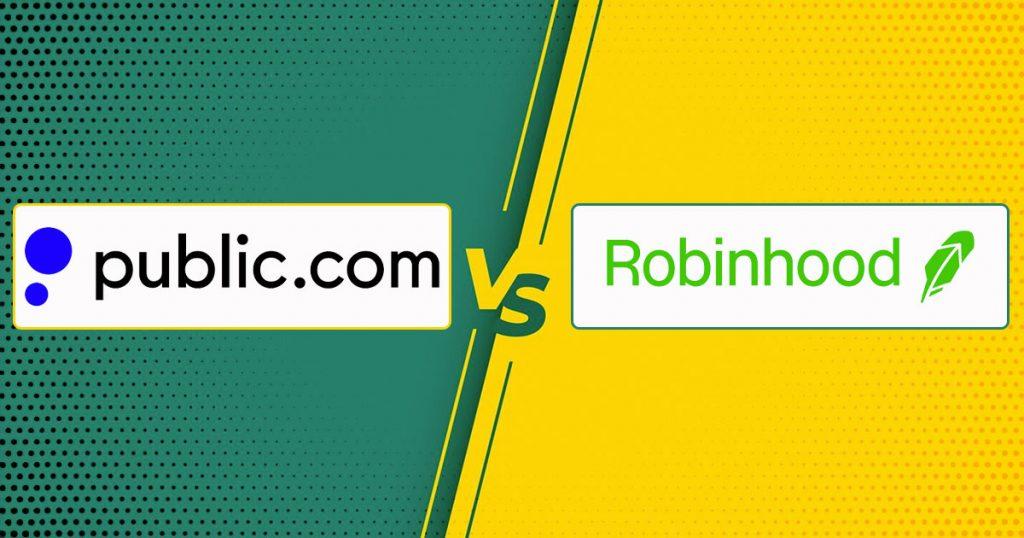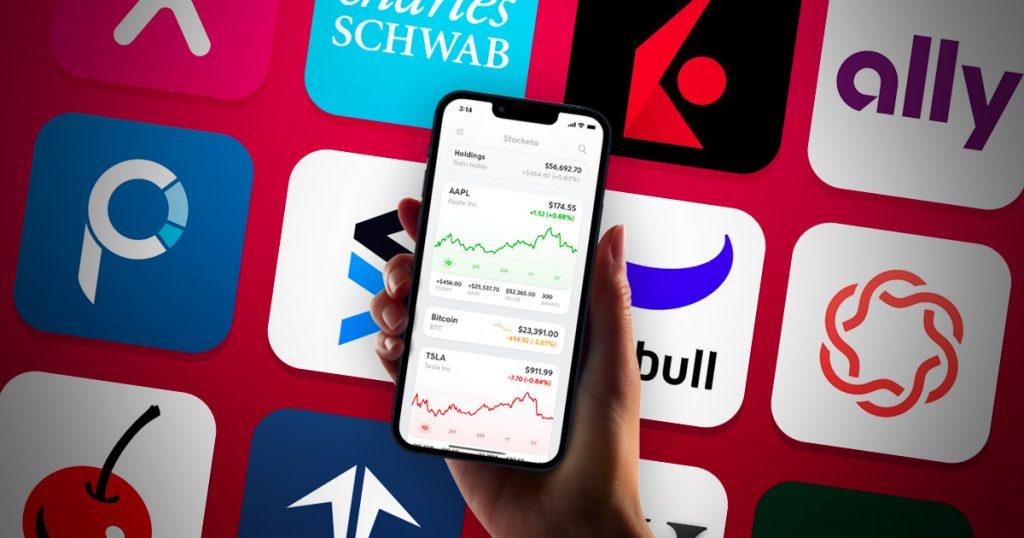Investing in stocks has never been easier, thanks to platforms like Robinhood and Public.com that don’t charge fees for trading. But when it comes to choosing between Public.com and Robinhood, which one should you pick? Let’s compare them to help you decide.
What are the features of Public.com?
Public.com, launched in 2017, is all about combining social interaction with investing, focusing on transparency and community engagement. Here are its main features:
- Commission-Free Trading: Similar to Robinhood, Public lets users trade stocks and ETFs without paying any commission fees. This is great for small investors and those aiming to keep their trading costs low.
- Social Investing: Public allows users to follow other investors, including friends and well-known figures, view their portfolios, and join discussions about investment strategies. It’s a community-driven approach that helps new investors learn from experienced traders.
- No Payment for Order Flow (PFOF): Unlike many other brokers, the Public doesn’t receive compensation from market makers for directing trade orders to them. This approach enhances transparency and reduces potential conflicts of interest.
- Investing Themes: Public organizes stocks into themes like AI, ESG criteria, and emerging technologies. This helps investors align their investments with their values and interests.
- Cryptocurrency Support: Public also supports trading cryptocurrencies, though trades incur a spread fee ranging from 1% to 2%.
What are the benefits and disadvantages of Public.com?
Here are some of the benefits and disadvantages of Public.com:
Benefits
- Social Investing Dynamics: Public stands out for its focus on social interaction and community engagement, making it perfect for investors who enjoy learning and sharing insights with others.
- Transparency: Public enhances transparency by not participating in payment for order flow. This assures users that their trades are executed without potential conflicts of interest, ensuring openness in its trading practices.
- Thematic Investing: Public’s thematic investment approach allows users to invest in sectors and causes they care about. This empowers investors to support industries aligned with their values and interests.
Disadvantages
- Limited Research Tools: Compared to traditional brokerages, Public offers fewer research tools and analytical resources. This might restrict more experienced investors from conducting thorough analyses to make informed investment decisions.
- Lack of Advanced Trading Features: Public does not support margin trading or options trading, which may discourage investors looking to use leverage or engage in advanced trading strategies beyond basic stock and ETF trades.
- Cryptocurrency Spread Fee: While Public allows cryptocurrency trading, the 1-2% spread fee on transactions may be seen as less transparent compared to platforms that disclose flat transaction fees.
What are the features of Robinhood?
Robinhood started in 2013 and has become known for making finance accessible with its easy-to-use platform and no-fee trading. Here’s a closer look at what it offers:
- No-Fee Trading: Robinhood changed how trading works by letting people buy and sell stocks, ETFs, options, and cryptocurrencies without paying fees. This has attracted many young investors and beginners to the platform.
- Options Trading: A big feature of Robinhood is its support for trading options without charging fees. This is great for traders who want to use more complex strategies and get involved in markets beyond basic stocks.
- Margin Trading: Robinhood also offers margin accounts, which let eligible users trade with borrowed money. It can boost your buying power, but you’ll pay interest rates between 5% and 9% each year.
- Robinhood Gold: For $5 a month, users can upgrade to Robinhood Gold for extra perks. This includes detailed market data from Nasdaq, faster deposits, and more research tools. It’s made for active traders who want deeper insights into the markets.
- Cash Management: Robinhood’s Cash Management feature comes with a debit card that lets users earn cash back on purchases. It’s all managed right in the Robinhood app, making it easy to keep track of your money.
What are the benefits and disadvantages of Robinhood?
These are the benefits and advantages you can expect from Robinhood:
Benefits
- Wide Range of Investments: Robinhood lets you invest in stocks, ETFs, options, and cryptocurrencies, giving you lots of choices to build a diverse investment portfolio.
- Robinhood Gold: For $5 a month, Robinhood Gold offers advanced market data and research tools. It’s perfect for serious traders who need detailed information to make informed decisions.
- Easy-to-Use Platform: Robinhood’s mobile app and website are designed to be simple and user-friendly. It’s great for beginners who want to start investing without complications.
Disadvantages
- Payment for Order Flow (PFOF): Robinhood makes money from payment for order flow, where it gets paid by market makers for directing trades to them. Some people worry this could create conflicts of interest and affect how orders are handled.
- Regulatory Issues and Controversies: Robinhood has been in trouble with regulators and faced criticism for issues like making investing seem like a game and stopping trades during market turmoil, like with GameStop stocks. These incidents have raised concerns among users and officials.
- Limited Customer Support: Robinhood mainly offers customer service through its app chat and email. While it’s handy for basic questions, users have complained about the availability and responsiveness of support, especially during busy times.
Public.com vs Robinhood: Which should you use?
When choosing between Public.com and Robinhood, consider what best fits your investing goals and comfort level with different features.
Public.com is good for
- Social investors: Public encourages community engagement and learning from other investors. You can follow friends and top investors, see their trades, and discuss strategies. This is great if you value transparency and learning from others.
- Transparency seekers: Public doesn’t use payment for order flow, which means it avoids potential conflicts of interest. If you care about clear and fair trading practices, Public might be a good fit.
- Beginners: Public is easy to use with themes like AI and ESG-friendly companies. This helps beginners invest in sectors they care about without needing lots of research.
Robinhood is good for
- Advanced traders: Robinhood offers options and margin trading without fees, making it ideal for those interested in complex strategies and borrowing to trade more.
- Diverse investments: Robinhood has a wide range of assets like stocks, ETFs, options, and cryptocurrencies. This lets you diversify your investments according to your preferences and risk tolerance.
- Tech-savvy users: Robinhood’s mobile app is user-friendly and includes advanced tools like real-time data and charts. It’s perfect if you like managing investments on your phone and using sophisticated trading features.
Verdict
When deciding between Public.com and Robinhood, choose based on your investing goals and comfort with different features. Public.com suits social investors who value community engagement and learning from others without payment for order flow, promoting transparency. It’s beginner-friendly with themed investments like AI and ESG-friendly companies. Robinhood is for advanced traders interested in options and margin trading without fees, offering a diverse range of assets including stocks, ETFs, options, and cryptocurrencies. It’s ideal for tech-savvy users who appreciate a mobile-friendly platform with advanced trading tools like real-time data and charts.



